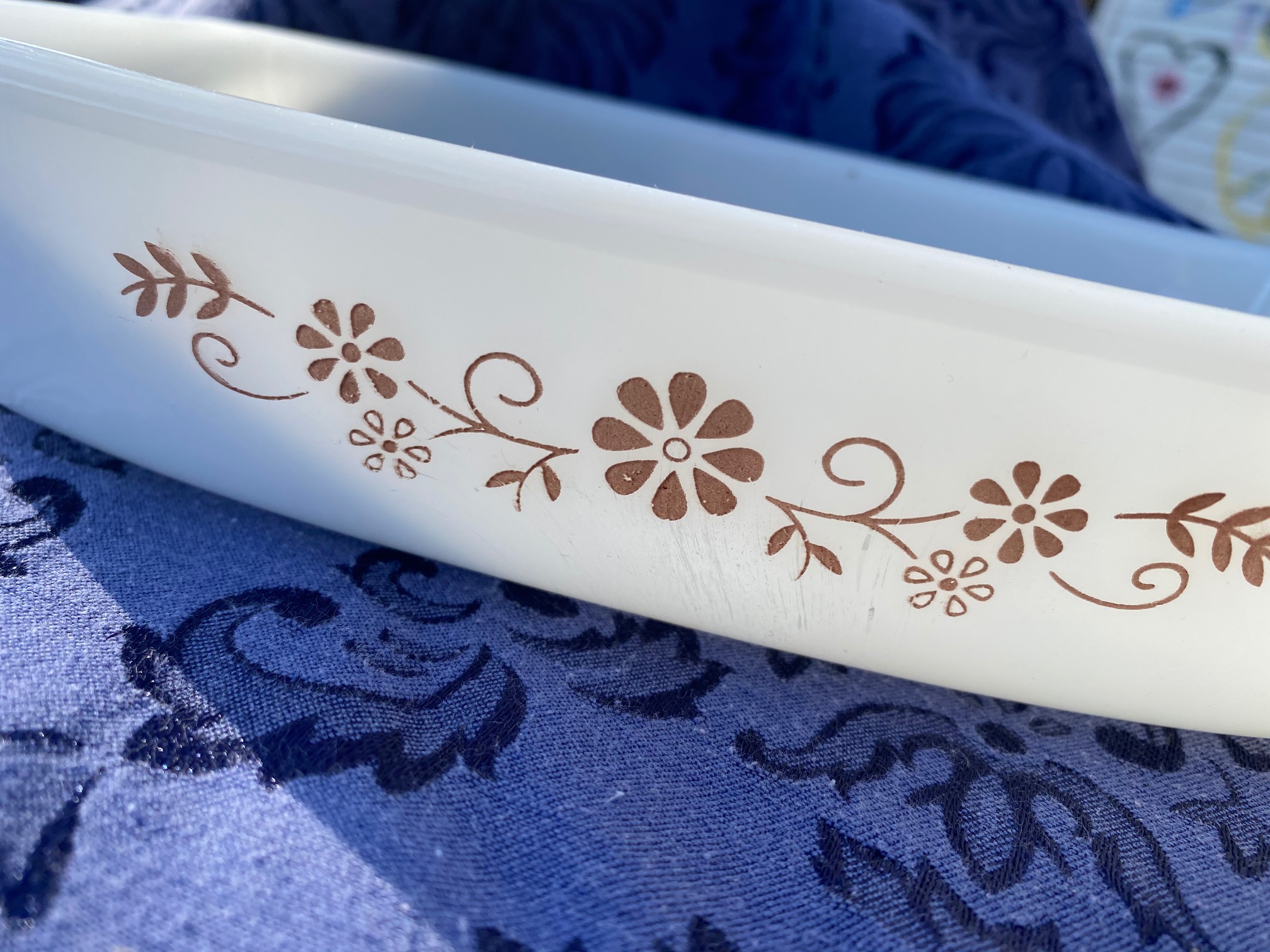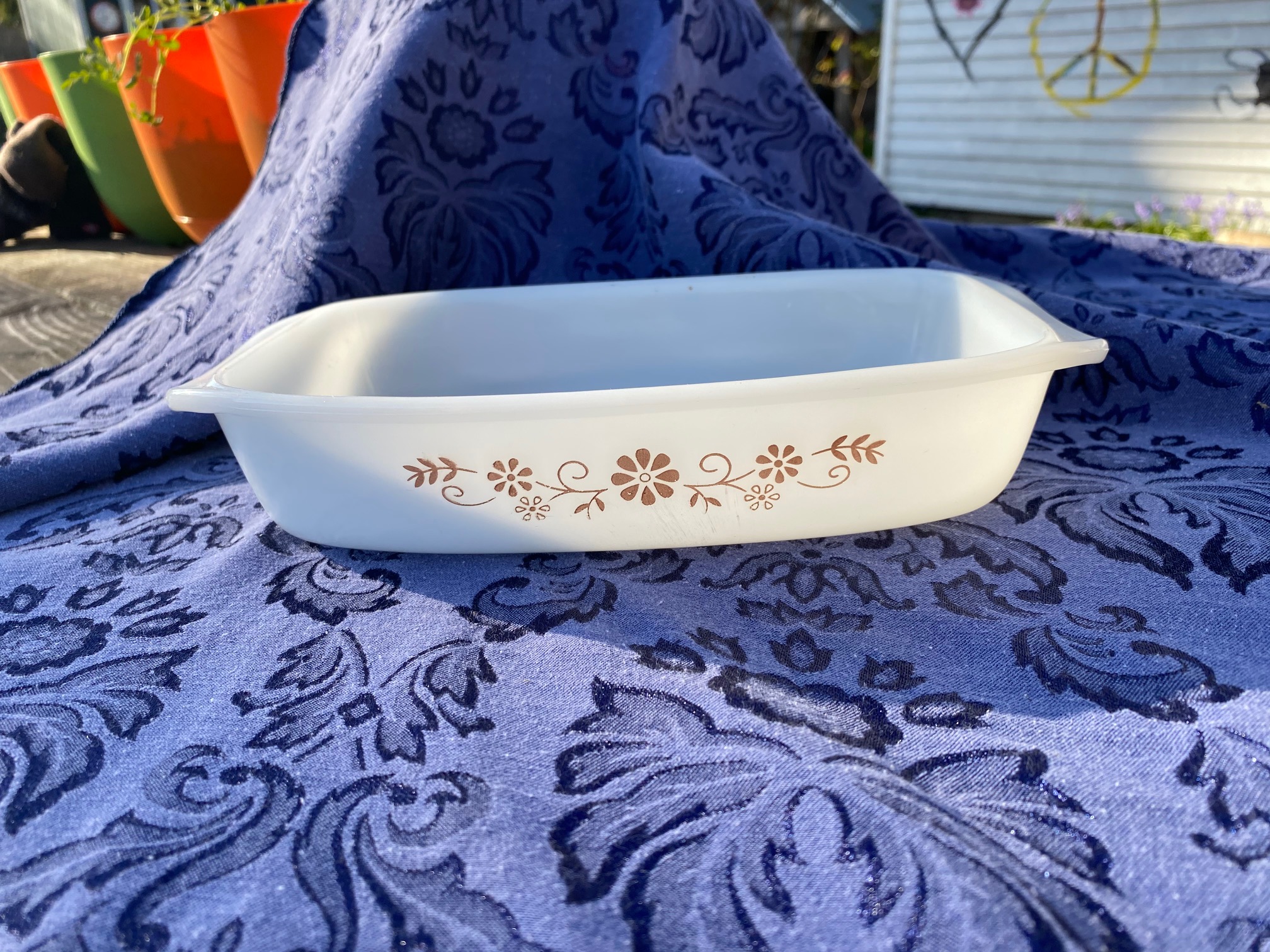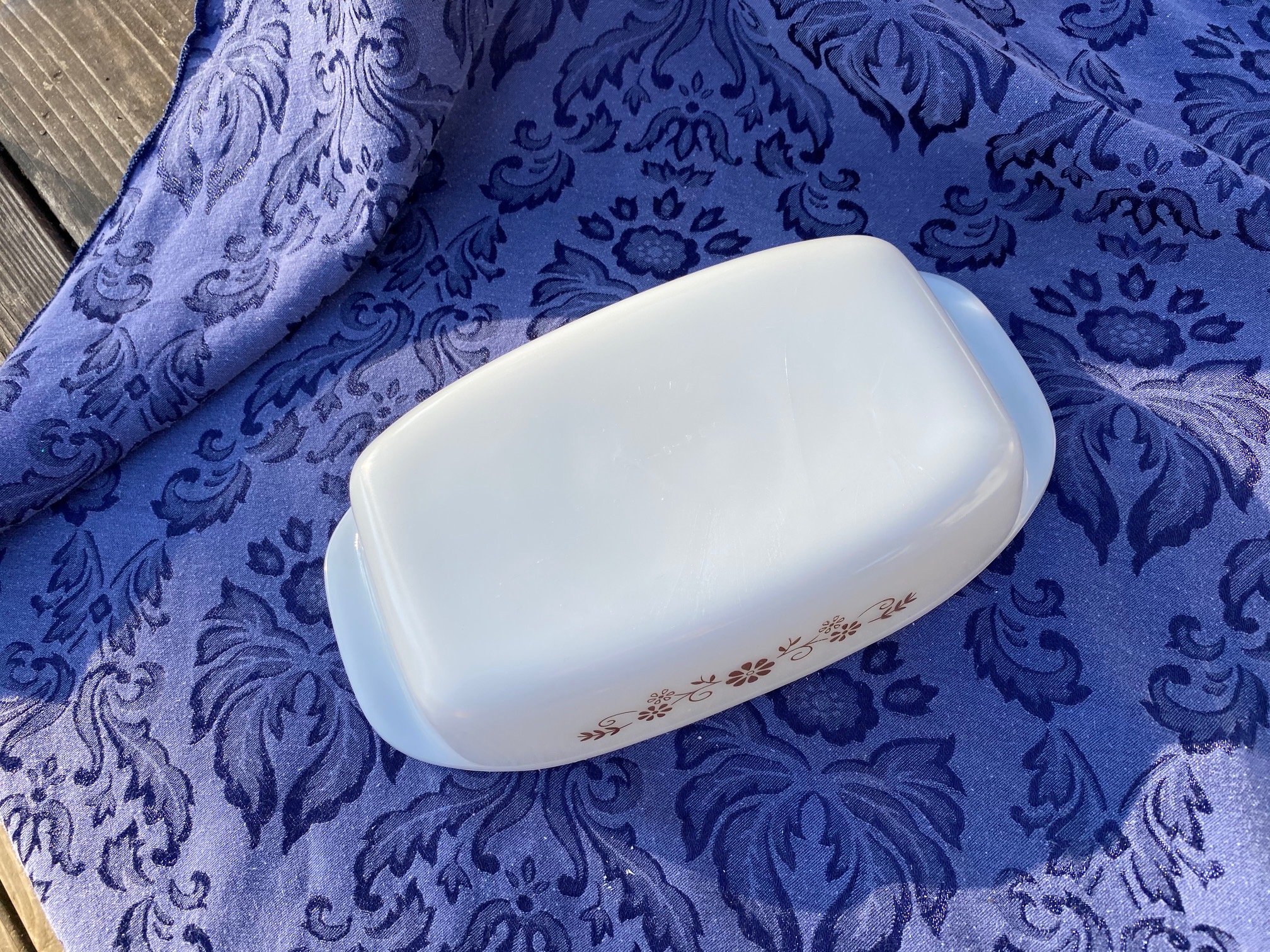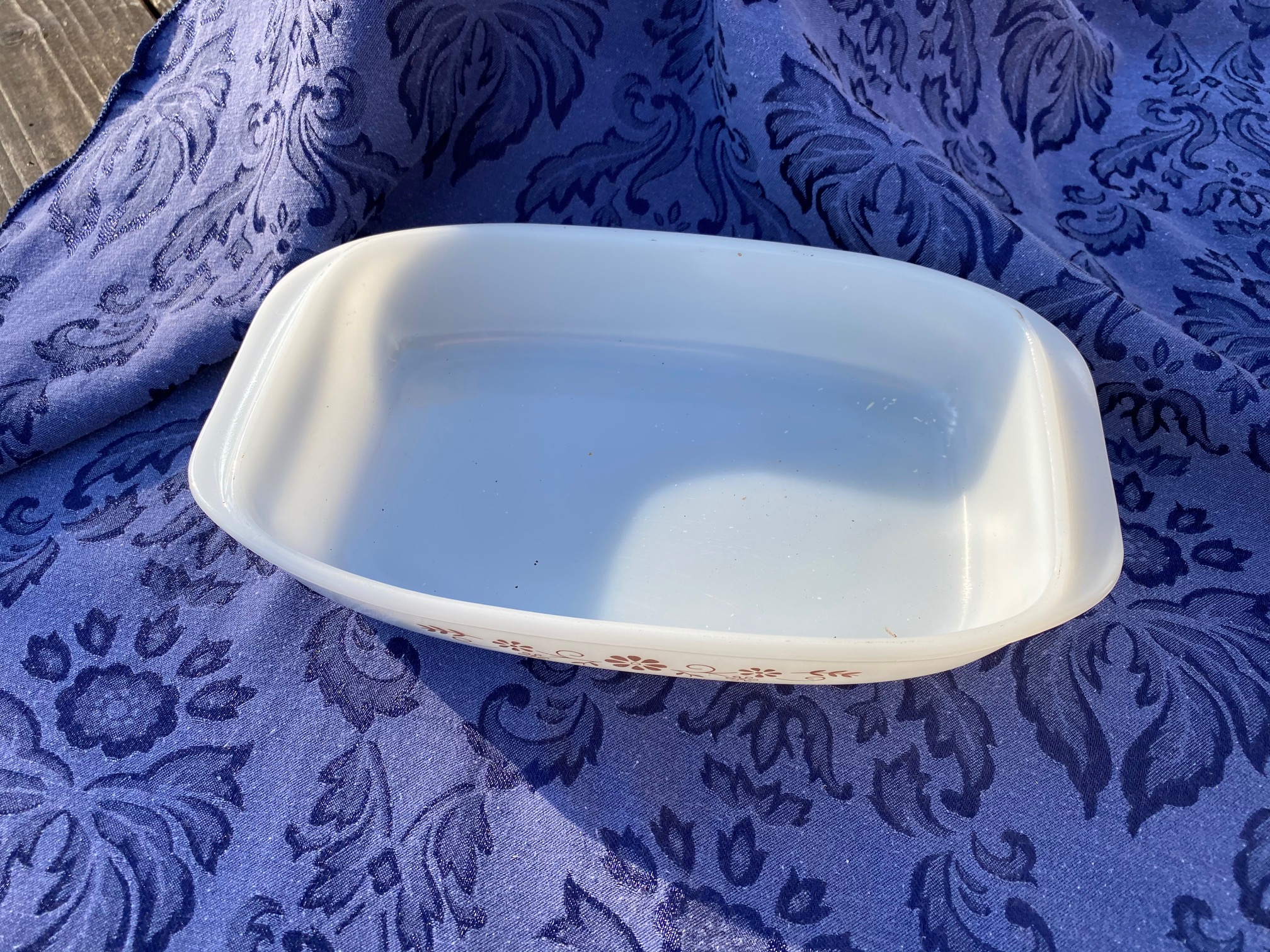Vintage Dynaware Pyr-O-Rey milk glass casserole: 9,804 ppm Lead, 2,204 ppm Arsenic, 413 ppm Cadmium.
Posted: Sunday, March 22, 2020
Introduction: Tamara Rubin is an independent advocate for consumer goods safety, and she is also a mother of Lead-poisoned children. She began testing consumer goods for toxicants in 2009 and was the parent-advocate responsible for finding Lead in the popular fidget spinner toys in 2017. She uses high-precision XRF testing (a scientific method used by the Consumer Product Safety Commission) to test consumer goods for metallic contaminants – including Lead, Cadmium, Mercury and Arsenic.
Vintage Dynaware casserole with brown flowers:
The full XRF test results of the casserole pictured are below (so please scroll down). In the meantime here are some additional related posts here on the blog that may be of interest!
- Click here to see more casserole dishes I have tested.
- Click here to read my post about how to choose a safer casserole.
- Click here to read more about the testing reported here on this blog.
- Click here to see more milk glass items I have tested.
It’s the #ZombieApocalypse, stay safe out there!
A quick note from Tamara
Hey readers – I hope you are staying well out there with all that is going on in the world right now. I’m hanging out mostly at home with my children – and have been doing so for about 10 days now. I pulled them out of school over a week ago – just to be safe. Each of my three youngest sons have compromised immune systems (which manifests in different ways for each of them), due to having been Lead-poisoned as babies.
In between kid-wrangling I am working hard to publish literally HUNDREDS of new posts (with test results for various consumer goods I have tested over the past couple of years, but have not yet had a moment to report on!). These posts have created a backlog in my system for more than a year now – and it’s actually nice to have a *break* with some time to catch up! To make this happen as quickly as possible, I am (as with this post) simply posting the images and the test results – without a lot of additional information. [Do not worry — I will continue to update them with more information as I get caught up and begin to have the time!]
For those new to my website, please check out the menu in the header of the website for more information about how I test things (and my background, etc.) On each post you can also click on any of the keyword tabs at the top of the post to find more items in that category. Here’s the post discussing the type of testing I do, and the specific instrument I use to detect, analyze and confirm metals content, and ultimately produce the resultant data for each item reported here – link.
Please Note: Test results reported below are science-based, accurate, and replicable. Test results reported here are from tests that were done for a minimum of 60 seconds each, and repeated multiple times, to confirm the results. As with all the testing reported here on my blog, a freshly-calibrated high-precision XRF instrument testing in Consumer Goods mode was used to test the item pictured here.
As always, please let me know if you have any questions.
Thank you for reading and for sharing my posts!
Tamara Rubin
#LeadSafeMama
Test results for the Dynaware casserole pictured on this post:
On white of glass:
- Lead (Pb): 22 +/- 13 ppm
- Arsenic (As): 1,187 +/- 47 ppm
- Barium (Ba): 2,157 +/- 407 ppm
- Iron (Fe): 149 +/- 86 ppm
- Titanium (Ti): 100 +/- 41 ppm
Reading two on white of glass:
- Arsenic (As): 1,278 +/- 75 ppm
- Barium (Ba): 2,118 +/- 638 ppm
- Titanium (Ti): 118 +/- 52 ppm
Reading on brown flower:
- Lead (Pb): 9,804 +/- 504 ppm
- Cadmium (Cd): 413+/- 65 ppm
- Arsenic (As): 2,204 +/- 241 ppm
- Barium (Ba): 1,005 +/- 491 ppm
- Chromium (Cr): 1,552 +/- 86 ppm
- Zinc (Zn): 621 +/- 83 ppm
- Nickel (Ni): 130 +/- 56 ppm
- Iron (Fe): 1,173 +/- 201 ppm
- Titanium (Ti): 1,596 +/- 125 ppm
- Chlorine (Cl): 8,453 +/- 1,133
~ End of Post ~
Scroll down for additional photos of this item.

Never Miss an Important Article Again!
Join our Email List







So these should not be used?